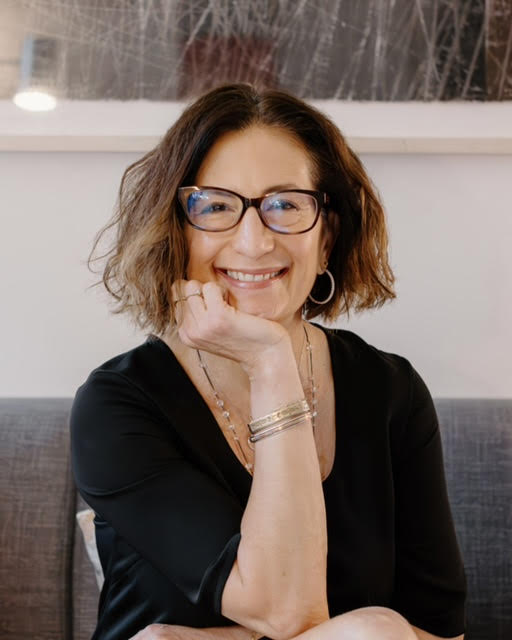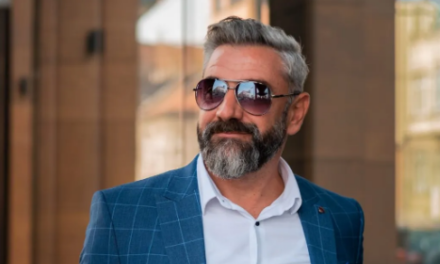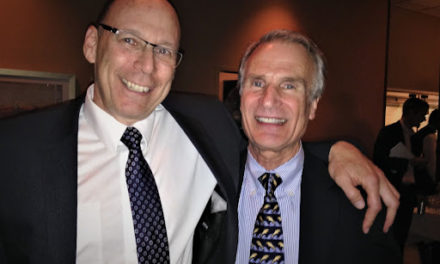Heidi Kling is a distinguished figure in the field of clinical psychology, previously serving as a clinical supervisor of PhD candidates at The Derner Institute for Advanced Psychological Studies at Adelphi University in New York. In this role, Heidi Kling mentors and supervises doctoral students, guiding them through the complexities of clinical practice and research with a focus on psychodynamic psychotherapy, group therapy, and intensive case management. Complementing her academic role, she is also a certified life coach through the Certified Life Coach Institute, where she integrates her extensive psychological expertise with life coaching strategies to help individuals achieve their personal and professional goals.
Heidi Kling’s educational background is robust and diverse. She earned her PhD in Clinical Psychology with a concentration in Group Psychotherapy from the Gordon F. Derner Institute for Advanced Psychological Studies at Adelphi University in 1999, and an MA in School Psychology from the same institution in 1995. Prior to this, she obtained a masters in Public Health from Yale University School of Medicine’s Department of Epidemiology and Public Health in 1989, where she was a Weinerman Fellow. She also holds a Bachelor of Arts in English and General Literature, graduating Phi Beta Kappa with departmental honours from the State University of New York at Binghamton in 1987.
In her extensive clinical career, Heidi Kling has managed a successful private practice in New York City since 2000, providing psychodynamic psychotherapy for individuals and couples. Her experience includes roles at The Village Institute for Psychotherapy, where she worked as a staff psychotherapist, and at Gracie Square Hospital, where she served as the Senior Clinical Coordinator for the Program for Managing Eating Disorders. At St. Luke’s-Roosevelt Hospital Center, Dr. Kling held various positions, including psychology intern and clinical assessor, where she conducted individual and group therapy, psychological assessments, and intake evaluations in both inpatient and outpatient settings.
Heidi Kling’s research contributions include her doctoral dissertation on antisocial personality disorder in inner-city female drug users and a comparative study on psychoanalytic treatments. She has presented her findings at prominent conferences, such as the National Meeting of the Collaborative Analytic Multisite Project of the American Psychoanalytic Association. Her presentations cover a range of topics including body image, eating disorders, and psychoanalytic processes.
Through her roles as a clinical supervisor, private practitioner, and certified life coach, Heidi Kling remains dedicated to advancing the field of psychology and fostering a holistic approach to mental health care. Her extensive experience, academic contributions, and commitment to patient-centered therapy make her a highly respected and influential figure in the mental health community.
Can you share what inspired you to pursue a career in clinical psychology, and how your diverse educational background has influenced your approach?
My journey into clinical psychology was driven by a desire to understand human behaviour and assist people with their mental health. Initially, my undergraduate studies in English and General Literature sparked my fascination with human stories and psychological complexities. Volunteer work at community centres further solidified my passion for psychology. My public health studies at Yale emphasised the broader societal impacts on mental health, which greatly influenced my holistic approach to clinical practice and supervision. This interdisciplinary background has allowed me to incorporate various perspectives into my work, enhancing my ability to address the complex needs of my clients and students.
As the previous clinical supervisor at The Derner Institute, what key principles or techniques do you emphasize when guiding PhD candidates in their clinical practice and research?
I stress the importance of building a strong therapeutic alliance, remaining curious and open-minded, and integrating theory with practice. I encourage PhD candidates to deeply understand psychodynamic principles while being adaptable to each client’s needs. Rigorous self-reflection and continuous professional development are crucial, as is maintaining a balance between empathy and clinical objectivity. Additionally, I emphasise the importance of ethical practice, cultural competence, and the ability to critically evaluate and apply research findings to clinical work. This comprehensive approach prepares students to become well-rounded and effective practitioners.
How do psychodynamic psychotherapy, group therapy, and intensive case management play a role in your work, and why are they important in modern psychological practice?
Psychodynamic psychotherapy helps uncover unconscious processes influencing behavior, which is crucial for lasting change. Group therapy provides a supportive environment where clients can gain insights and develop interpersonal skills. Intensive case management ensures clients receive comprehensive care, addressing various aspects of their well-being. These approaches collectively create a robust and holistic treatment model that adapts to the complexities of modern mental health issues. By combining these methods, I can address both individual and systemic factors, offering a more comprehensive and effective treatment plan.
Balancing your roles as a clinical supervisor, private practitioner, and certified life coach must be challenging. How do you manage these responsibilities effectively?
Balancing these roles requires meticulous time management and clear boundaries. Each role enriches my overall practice. The challenge lies in remaining fully present and effective in each capacity. I practice regular self-care, such as mindfulness and exercise, to maintain my own well-being and prevent burnout. Setting priorities and delegating tasks when necessary also help me manage these responsibilities effectively. Furthermore, I find that the skills and insights gained in one role often inform and enhance my performance in the others, creating a synergistic effect that benefits both me and my clients.
Your private practice in New York City has been thriving for over two decades. What do you find most rewarding about working with individuals and couples in a private setting?
Witnessing the personal growth and transformation of my clients is incredibly rewarding. In a private setting, I can tailor my therapeutic approach to each individual or couple, allowing for deeper, more personalised interventions. The trust and rapport developed in this environment facilitate meaningful change and healing, making the work highly fulfilling. Additionally, the flexibility of private practice enables me to integrate various therapeutic modalities and adapt to the unique needs of each client, ensuring a more effective and individualized treatment plan.
With your extensive experience at Gracie Square Hospital and research on body image, how do you integrate these insights into your current practice?
My experience with eating disorders and body image issues taught me the importance of addressing underlying psychological factors and promoting a healthy self-concept. In my practice, I use psychodynamic therapy to explore root causes and cognitive-behavioural techniques to address distorted thoughts and behaviours. This integrated approach helps clients achieve a more balanced and positive self-image. Additionally, I stay updated on the latest research and advancements in the field, continuously refining my techniques to provide the most effective care for my clients.
Your doctoral dissertation focused on antisocial personality disorder in inner-city female drug users. What were the significant findings, and how have they informed your clinical work?
My research highlighted the role of early trauma and environmental factors in developing antisocial behaviours. This emphasised the need for trauma-informed care and comprehensive treatment approaches that address both psychological and environmental factors. These insights have informed my clinical work by emphasising empathy, understanding, and a holistic approach to treatment. By considering the broader context of each client’s life, I can develop more effective and compassionate treatment plans that address the root causes of their issues.
As a certified life coach, how do you blend life coaching strategies with your psychological knowledge to help individuals achieve their goals?
Life coaching focuses on goal-setting, personal development, and actionable strategies for improvement. By combining these with my psychological expertise, I help clients set and achieve their goals while understanding and overcoming underlying psychological barriers. This integrated approach supports both immediate and long-term personal growth, helping clients navigate their personal and professional challenges effectively. Additionally, the combination of therapeutic and coaching techniques allows for a more holistic and flexible approach, accommodating the diverse needs and goals of each client.
What advice would you give to emerging clinical psychologists, particularly those interested in psychodynamic psychotherapy and group therapy?
I advise emerging psychologists to cultivate patience and perseverance, as these fields require deep understanding and continuous learning. Building a strong theoretical foundation is crucial, but gaining practical experience and seeking supervision from experienced clinicians are equally important. Embrace the complexity of human behaviour, remain curious, and stay compassionate in your practice. Also, stay updated with the latest research and trends in the field to ensure your practice remains relevant and effective. Engaging in continuous professional development and networking with peers can provide valuable insights and support throughout your career.
How do you stay current with the latest developments in clinical psychology, and what trends do you see shaping the field in the next decade?
Staying current involves regular participation in professional conferences, ongoing education, and staying engaged with current research through academic journals. Peer supervision and collaboration provide fresh perspectives and insights. I see significant trends in integrating technology in therapy, such as teletherapy and digital mental health tools. There is also a growing emphasis on trauma-informed care and recognizing systemic issues’ impact on mental health. I foresee the field evolving toward more holistic, interdisciplinary approaches with greater accessibility and inclusivity in mental health services. The continuous advancements in neuroscience and psychopharmacology will also likely play a critical role in shaping the future of clinical psychology, offering new insights and treatment options for various mental health conditions.




